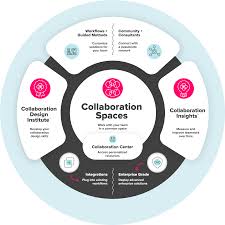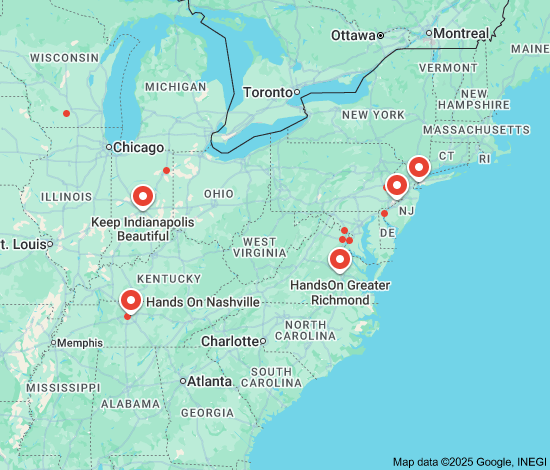The Meaning of EEOC: Understanding the Equal Employment Opportunity Commission
When it comes to workplace discrimination and ensuring fair treatment for employees, the Equal Employment Opportunity Commission (EEOC) plays a crucial role in upholding federal laws that protect workers’ rights.
The EEOC is a federal agency established to enforce laws against workplace discrimination based on factors such as race, color, religion, sex, national origin, age, disability, or genetic information. It works to promote equal opportunity in employment through investigation, mediation, and litigation of complaints filed by employees.
Employers covered by EEOC laws are prohibited from discriminating against employees or job applicants on the basis of the protected categories mentioned above. The EEOC also oversees compliance with laws related to equal pay and reasonable accommodations for individuals with disabilities.
Individuals who believe they have been subjected to discrimination in the workplace can file a charge with the EEOC. The commission will investigate the claim and take appropriate action if it finds evidence of discrimination. This may include pursuing legal action against the employer or seeking remedies for the affected employee.
Overall, the EEOC plays a vital role in promoting fairness and equality in the workplace by enforcing anti-discrimination laws and holding employers accountable for discriminatory practices. By upholding these principles, the EEOC helps create a more inclusive and equitable work environment for all employees.
Understanding the EEOC: Answers to Common Questions About Workplace Discrimination and Equal Opportunity
- What does EEOC stand for?
- What is the purpose of the Equal Employment Opportunity Commission (EEOC)?
- What types of discrimination are covered by the EEOC?
- How can I file a charge with the EEOC if I believe I have been discriminated against at work?
- What happens after I file a charge with the EEOC?
- Can the EEOC help me resolve a workplace discrimination issue without going to court?
- Are all employers required to comply with EEOC laws?
- What remedies or actions can the EEOC take if it finds evidence of discrimination in a workplace?
- How does the EEOC promote equal opportunity and fair treatment in employment?
What does EEOC stand for?
The acronym EEOC stands for the Equal Employment Opportunity Commission. This federal agency is responsible for enforcing laws that prohibit workplace discrimination based on factors such as race, color, religion, sex, national origin, age, disability, or genetic information. The EEOC works to ensure equal opportunity in employment by investigating complaints of discrimination filed by employees and taking appropriate action to address violations of anti-discrimination laws.
What is the purpose of the Equal Employment Opportunity Commission (EEOC)?
The purpose of the Equal Employment Opportunity Commission (EEOC) is to enforce federal laws that prohibit workplace discrimination based on various protected categories, such as race, color, religion, sex, national origin, age, disability, or genetic information. The EEOC works to promote equal opportunity in employment by investigating complaints of discrimination filed by employees and taking appropriate action against employers found to be engaging in discriminatory practices. Through its enforcement efforts and outreach programs, the EEOC aims to create a fair and inclusive work environment where individuals are treated with respect and have equal access to employment opportunities.
What types of discrimination are covered by the EEOC?
The Equal Employment Opportunity Commission (EEOC) covers a wide range of discrimination types in the workplace to ensure equal opportunities for all employees. The EEOC prohibits discrimination based on factors such as race, color, religion, sex, national origin, age, disability, and genetic information. This means that employers are not allowed to discriminate against employees or job applicants on these grounds. The EEOC also oversees compliance with laws related to equal pay and reasonable accommodations for individuals with disabilities. By addressing various forms of discrimination, the EEOC plays a crucial role in promoting fairness and equality in the workplace.
How can I file a charge with the EEOC if I believe I have been discriminated against at work?
If you believe you have been discriminated against at work, you can file a charge with the Equal Employment Opportunity Commission (EEOC) to seek redress for the alleged discrimination. To initiate the process, you must first contact the EEOC office nearest to you to schedule an appointment or inquire about filing procedures. The EEOC will then guide you through the necessary steps to submit a charge, which typically involves providing detailed information about the discriminatory actions experienced, as well as relevant dates and individuals involved. It is important to adhere to any deadlines imposed by the EEOC for filing a charge to ensure that your complaint is properly addressed and investigated.
What happens after I file a charge with the EEOC?
After filing a charge with the Equal Employment Opportunity Commission (EEOC), the next steps typically involve the commission conducting an investigation into the allegations of discrimination. The EEOC will gather information from both the charging party and the employer to assess the validity of the claim. Depending on the findings, the EEOC may attempt to facilitate a settlement between the parties through mediation. If a resolution is not reached, the EEOC may choose to pursue further action, such as filing a lawsuit against the employer on behalf of the charging party. Throughout this process, the EEOC works to uphold federal anti-discrimination laws and ensure that individuals who have experienced workplace discrimination receive fair treatment and appropriate remedies.
Can the EEOC help me resolve a workplace discrimination issue without going to court?
Yes, the Equal Employment Opportunity Commission (EEOC) can help individuals resolve workplace discrimination issues without having to go to court. The EEOC offers mediation services as an alternative dispute resolution method to help parties reach a mutually agreeable solution outside of the courtroom. Through mediation, the EEOC facilitates communication between the parties involved and assists in finding a resolution that addresses the discrimination complaint. This process can be quicker and less costly than litigation, providing a more efficient way to resolve workplace disputes while promoting understanding and cooperation between employers and employees.
Are all employers required to comply with EEOC laws?
All employers in the United States with 15 or more employees are required to comply with EEOC laws. These laws prohibit workplace discrimination based on factors such as race, color, religion, sex, national origin, age, disability, or genetic information. Employers covered by EEOC regulations must adhere to guidelines regarding hiring practices, promotions, pay rates, and other aspects of employment to ensure equal opportunity for all individuals in the workplace. Failure to comply with EEOC laws can result in legal action and penalties for employers found guilty of discriminatory practices.
What remedies or actions can the EEOC take if it finds evidence of discrimination in a workplace?
When the Equal Employment Opportunity Commission (EEOC) finds evidence of discrimination in a workplace, it can take various remedies and actions to address the issue. Some of the actions that the EEOC may take include initiating mediation between the parties involved to reach a resolution, filing a lawsuit against the employer on behalf of the affected individual or group, seeking compensatory and punitive damages for victims of discrimination, and requiring the employer to implement corrective measures to prevent future instances of discrimination. The EEOC’s goal is to ensure that employees are treated fairly and that employers comply with anti-discrimination laws to create a more inclusive and equitable work environment.
How does the EEOC promote equal opportunity and fair treatment in employment?
The Equal Employment Opportunity Commission (EEOC) promotes equal opportunity and fair treatment in employment through various mechanisms. One key way is by enforcing federal laws that prohibit discrimination based on protected categories such as race, religion, sex, age, disability, and national origin. The EEOC investigates complaints of discrimination filed by employees to ensure that employers adhere to these laws. Additionally, the EEOC provides guidance and resources to employers and employees on how to prevent discrimination in the workplace and create inclusive environments. By holding employers accountable for discriminatory practices and advocating for equal treatment for all individuals, the EEOC plays a crucial role in fostering diversity, equity, and inclusivity in the workforce.




Leave a Reply